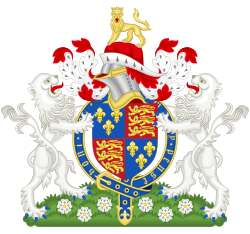| Act of Parliament | |
 | |
| Long title | Whosoever shall bring into this realm any wrought silk to be sold, concerning the mystery of silk-workers, shall forfeit the same, and x. li. |
|---|---|
| Citation | 3 Edw. 4. c. 3 |
| Territorial extent | |
| Dates | |
| Royal assent | 29 April 1463 |
| Commencement | 29 April 1463 [a] |
| Repealed | 24 June 1822 |
| Other legislation | |
| Repealed by | Repeal of Acts Concerning Importation Act 1822 |
| Relates to | |
Status: Repealed | |
| Text of statute as originally enacted | |
The Importation of Silk Act 1463 (3 Edw. 4. c. 3) was an act of the Parliament of England passed during the reign of Edward IV that prohibited the importation of foreign-made silk in order to protect the English silk industry located in London. [1]